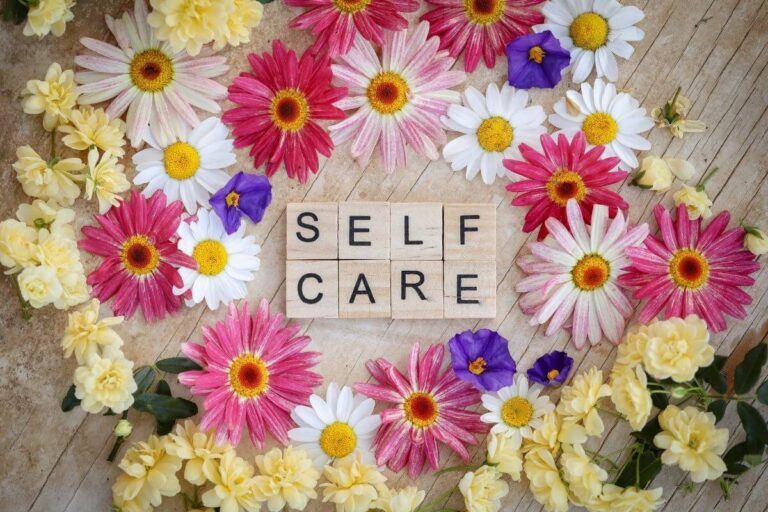How to Face the Reality of Your Parents Getting Older: Compassionate Tips & Support
Navigating the emotional and practical toll of watching your parents age can certainly be challenging. It’s important to find support, start difficult conversations, and take practical steps to move forward with the tips I share below.
The moment can hit you unexpectedly. Maybe it’s when your mother asks you to repeat something for the third time, or it’s when your father needs help opening the jars he used to open for you.
Suddenly, the people who seemed invincible throughout your childhood appear fragile, and the roles you’ve always known begin to shift. It’s probably time to face the reality of your parents getting older.
This realization is difficult, complicated, and overwhelming for many people. You’re not alone in this experience. Millions of adult children watch their parents age and struggle with the complex feelings that come with this natural part of life.

Below, we will explore the emotional impact, provide advice on how to talk with and support your parents, and reveal how to move forward in the process.
As you transition into a caregiving role for your parents, the insight I share below will help you do it peacefully, empathetically, and wisely.
The Emotional Impact on You as you Face the Reality of Your Parents Getting Older
People age—everyone knows this. However, this fact feels much different when it becomes obvious in your own relationships, particular those with your parents.
Watching your parents age triggers a grief process that many people don’t expect. You’re mourning the loss of their former selves while they’re still very much alive. This anticipatory grief is normal but can feel overwhelming and confusing.
Guilt can become a constant companion during this time. You might feel guilty for noticing their decline, for not visiting enough, or for feeling frustrated with their limitations.
Fear might also creep in as you realize what lies ahead. Concerns about their safety, health, and independence consume your thoughts.
You might lie awake at night wondering if they’ll be okay living alone or worrying about what happens if they fall or have a medical emergency.
The role reversal can feel deeply unsettling. The people who protected and guided you now need your protection and guidance.
This shift challenges your identity and forces you to confront your own mortality in ways you might not have been prepared for.
While this can seem like a pretty grim time, you will be able to manage it well if you are prepared. Learn about having difficult conversations, creating support systems, and taking practical steps forward. I’ll discuss each of these below.

Having Difficult Conversations
You have to talk with your parents. They are only getting older, and this means they will become more dependent on your care or decision-making. It’s imperative that you understand their wants, needs, concerns, and hopes.
“Growing older is better than the alternative. Live these years with gratitude and grace.”
~ Susan Ballinger, Sassy Sister Stuff
We know that starting conversations about aging and future care needs feels uncomfortable, but these discussions are necessary. To approach the topic, choose a calm moment without distractions and begin with love rather than criticism.
Begin by expressing your observations without judgment. Instead of saying “You’re forgetting everything,” try “I’ve noticed you seem worried about remembering appointments, and I’d like to help.” This approach opens dialogue rather than creating defensiveness.
Odds are that your parents are aware of their declining physical or mental well-being. And they may also be worried about how to have a conversation with you without burdening you.
So make sure that you listen more than you speak during these conversations.
Give your parents space to say what’s on their mind. Once you understand their perspective, you can work together toward solutions regarding current care needs, end-of-life planning, and so forth.
The Importance of a Support System
You don’t have to navigate this journey alone, nor should you. Building a network of support benefits both you and your parents.
Friends & Family
Start by involving other family members in conversations and decision-making if your parents are okay with this. Friends, siblings, cousins, and other relatives can share responsibilities and provide different perspectives.
Geriatric Professionals
Professional help can be enormously useful. You might hire a geriatrician to provide specialized, comprehensive care for your parents. You can also benefit from social workers to help you navigate available resources and services.
And if your parents need in-home assistance but you don’t have the time, there are professionals to fill this need. Home health services can help with daily care and maintenance tasks while allowing your parents to remain in familiar surroundings.
Medical Professionals
Don’t forget to include your parents’ doctors in your caregiving. They can offer valuable information about your parents—especially their medications.
Social Services
The Department of Aging in your local area can be super helpful. Make an appointment to go talk with one of their counselors. They can direct you to resources in the community that can help you better manage this journey.
Need to Come Back? Save This Article!
Self-Care & Well-Being
You need support for just yourself. As your responsibilities increase, you must find ways to manage caregiver stress so you can provide focused, careful assistance to your parents.
Support groups are a great way to do this. Groups exist for adult children of aging parents, dedicated to offering understanding and practical advice from others facing similar challenges. There are online and in-person support groups available in most areas today.
Therapy is another great option. By hiring a therapist, you get a safe, confidential space to share your authentic feelings (no matter how negative) without fear of judgment.
A counselor can help you understand your feelings and provide the tools you need to address negative emotions productively. This will protect your well-being as you move forward in your journey.
Taking time for yourself is vitally important—it’s important to schedule this just like you schedule a doctors appointment. Put it on your calendar every day and have a plan for how you will provide self-care.
Will it be a walk in the park after dinner? Will it be watching that movie you’ve been wanting to see? How about taking time to check out that new dress shop down the street? Schedule something daily because these regular habits are important for your well-being.

Turn the Journey into an Opportunity for Connection
Accepting your parents’ aging doesn’t mean giving up hope or joy. In fact, it’s an opportunity to discover deeper relationships with them during this time.
Freed from the dynamics of your younger years and shaped by your own hard-earned wisdom, you’re in a better position to understand and engage with your parents meaningfully. Even if you’re already close, you can use this time to get closer.
Focus on creating meaningful moments within their current abilities. If your parents have things they still want to do or see, try to help them accomplish these goals. If they can no longer travel, bring experiences to them.
Look through old photos together, listen to their favorite music, or cook recipes that bring up good family memories. Just make sure you ask your parents how they want to spend time with you. It’s important to meet them where they’re at.
Use this time to reconnect with your parents in a way that is different and unique. You’ll find these year will give you amazing memories when they are gone.
Moving Forward Together
As you face the reality of your parents getting old, you’ll learn it’s one of life’s most challenging transitions. But it’s also an opportunity for growth, deeper connection, and understanding.
You’re learning to love your parents in new ways while honoring the people they’ve always been.
This journey will test your patience, stretch your resources, and challenge your emotions. But it will also teach you about resilience, compassion, and the depth of family bonds.
Trust yourself to navigate this path one day at a time, knowing that your love and care make a difference even when the road feels uncertain.
It won’t be easy on your parents either, but together you will create cherished memories.

Final Thoughts
Facing the reality of your parents getting older is never easy, but it can also be a season of deep connection, growth, and love.
By acknowledging your emotions, opening the door to honest conversations, leaning on support, and caring for your own well-being, you’ll be better equipped to walk this journey with compassion and strength.
Remember, you don’t have to do it alone—and every small step forward can create meaningful moments together.
Above all, remind yourself that love—not perfection—will guide you through.
Need more info about Caregiving? Check out these articles:
- Should Aging Parents Live With You or in a Nursing Home?
- How to Avoid Arguing with Elderly Parents
- How to Create an At-Home Care Plan (With Template)
- Your Elderly Parent Keeps Talking About Death… Here’s Why
Love to ALL! ~ Susan







